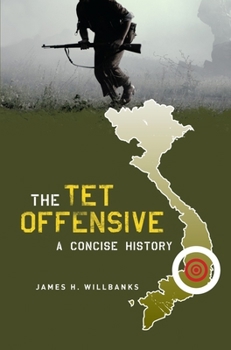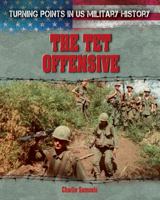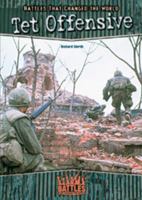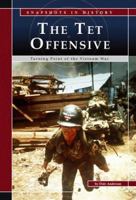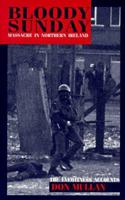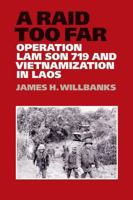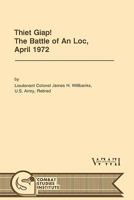The TET Offensive: A Concise History
In the Tet Offensive of 1968, Viet Cong and North Vietnamese forces launched a massive countrywide attack on South Vietnam. Though the Communists failed to achieve their tactical and operational objectives, James Willbanks claims Hanoi won a strategic victory. The offensive proved that America's progress was grossly overstated and caused many Americans and key presidential advisors to question the wisdom of prolonging combat.
Willbanks also maintains that the Communists laid siege to a Marine combat base two weeks prior to the Tet Offensive-known as the Battle of Khe Sanh--to distract the United States. It is his belief that these two events are intimately linked, and in his concise and compelling history, he presents an engaging portrait of the conflicts and singles out key problems of interpretation. Willbanks divides his study into six sections, beginning with a historical overview of the events leading up to the offensive, the attack itself, and the consequent battles of Saigon, Hue, and Khe Sahn. He continues with a critical assessment of the main themes and issues surrounding the offensive, and concludes with excerpts from American and Vietnamese documents, maps and chronologies, an annotated list of resources, and a short encyclopedia of key people, places, and events. An experienced military historian and scholar of the Vietnam War, Willbanks has written a unique critical reference and guide that enlarges the debate surrounding this important turning point in America's longest war.Format:Paperback
Language:English
ISBN:023112841X
ISBN13:9780231128414
Release Date:December 2008
Publisher:Columbia University Press
Length:272 Pages
Weight:0.85 lbs.
Dimensions:0.6" x 5.9" x 8.8"
Grade Range:Postsecondary and higher
You Might Also Enjoy
Related Subjects
TransportationMore by James H. Willbanks
Customer Reviews
2 customer ratings | 2 reviews
There are currently no reviews. Be the first to review this work.











